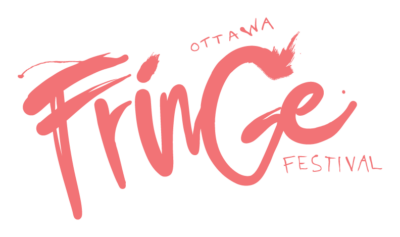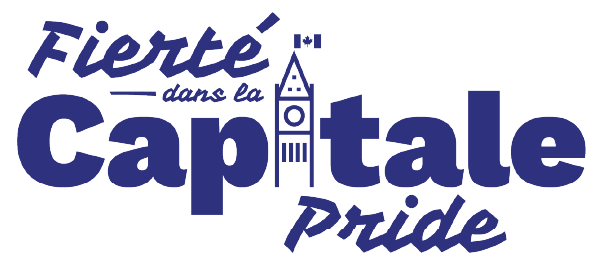Interview: The Walk, Moon Dog Theatre
It’s been said that the fringe provides an excellent launch pad for shows looking for an audience. Watching a rehearsal of Moon Dog Theatre’s The Walk, and you might think they’re already in orbit. Three years in the making, a cast of eight and several workshop productions under their belt, the show tackles the emotionally-charged minefield of human sex trafficking.
When I arrive at the Ottawa School of Speech and Drama to watch them rehearse and do this interview, they’re midway through the show. The action is divided between scenes of three artists trying to create a play about trafficking, and vignettes of the stories that they have encountered in their research. Catherine Cunningham-Huston, the show’s playwright, almost didn’t get past the starting line with the script. “The research material is so hard. I just thought at a certain point, I don’t think I can work on this project, it’s just too hard. And then I realized, it’s really about the struggle to write the play, so let’s make the play about that.”
 What resulted was the central device of the play, that the main characters – a playwright, a nun and a filmmaker – came to life from the very people that met to talk about creating The Walk. Watching the rehearsal it becomes apparent that the show is much more than that. Accompanied by a drummer, the other actors in the show portray a variety of characters, telling stories not only through acting, but dance and movement, complete with ornate masks.
What resulted was the central device of the play, that the main characters – a playwright, a nun and a filmmaker – came to life from the very people that met to talk about creating The Walk. Watching the rehearsal it becomes apparent that the show is much more than that. Accompanied by a drummer, the other actors in the show portray a variety of characters, telling stories not only through acting, but dance and movement, complete with ornate masks.
It’s hard material: the Mature label in the Fringe program isn’t just for show. The characters talk very frankly and openly about what they’ve endured and some of the imagery is very graphic. Dyna Ibrahim plays Celestine, the show’s central character, who has escaped her torment as a sex slave. For Dyna, the material was at times very difficult to portray. “It was hard, but the way I feel about this project, it makes me kind of emotional to think about it. I had trouble saying certain things.” The show’s director, Natalie Fraser-Purdy, helped Dyna to become comfortable with the scenario. “She made me understand a little bit that, this is reality, you can’t sugar-coat it, because otherwise there’s no point. And I got past it.”
 The character of Celestine is drawn from a real story, which became real for one of the show’s primary motivators, Sister Connie Goulet. In 2008, Sister Connie was asked if she’d like to help Celestine – not the teenage girl’s real name – to acclimatize to life in Canada. “She’d never had one day of schooling. I was one of the five hands which shot up right away. Within two meetings, she found out I was a high school drama teacher, and said, ‘Sister Connie, my friends are dying in Russia. We have to get a play on the stage, please, get a play on the stage so that my friends won’t die, so that people in Ottawa will know this horrible crime that goes on, and help them to put an end to this, and to save my friends.’”
The character of Celestine is drawn from a real story, which became real for one of the show’s primary motivators, Sister Connie Goulet. In 2008, Sister Connie was asked if she’d like to help Celestine – not the teenage girl’s real name – to acclimatize to life in Canada. “She’d never had one day of schooling. I was one of the five hands which shot up right away. Within two meetings, she found out I was a high school drama teacher, and said, ‘Sister Connie, my friends are dying in Russia. We have to get a play on the stage, please, get a play on the stage so that my friends won’t die, so that people in Ottawa will know this horrible crime that goes on, and help them to put an end to this, and to save my friends.’”
After that, Sister Connie felt called to put her talents to use to do just that. She quickly connected with Catherine Cunningham-Huston, and started production on the play. Natalie Fraser-Purdy came on board in the first version of the play in the role of Celestine, but in preparation for the Fringe production, was offered the opportunity to direct the show. “I love the part of Celestine very much, but I had such a passionate desire to bring this story to the stage,” says Natalie. “I feel blessed that so much of the work that I do is about making the world a better place, I knew that I could take it and put it on stage as something that came from beauty, from something that was real.”
 It’s clear that the cast has bonded well during the production process; even as we start the interview, there is a warm banter among the actors. According to Natalie, this wasn’t accidental. “It was certainly in my head when I chose the cast, to have people would be invested in this show in the way that Diana just described. I have this amazingly open-hearted cast who is interested and committed to the cause, extraordinary actors, who came in with all the skills that they required, and who put in the effort and were open to a very organic way to approaching this show.”
It’s clear that the cast has bonded well during the production process; even as we start the interview, there is a warm banter among the actors. According to Natalie, this wasn’t accidental. “It was certainly in my head when I chose the cast, to have people would be invested in this show in the way that Diana just described. I have this amazingly open-hearted cast who is interested and committed to the cause, extraordinary actors, who came in with all the skills that they required, and who put in the effort and were open to a very organic way to approaching this show.”
For actor Teri Loretto, playing the part of the playwright, the Fringe festival is a logical venue for a show like this. “Fringe is a great opportunity for new works because people expect to see something that’s not ordinary. They expect to see things that might challenge them. The audience is less of the small-c conservatives that we see in some of the bigger houses, who have expectations as subscription holders of what they need to see. At a festival, you have fifteen to twenty shows a day that you can see. If you don’t like one, you see something else.”
 Even as the cast prepares for their six performances at the Fringe, they have future gigs lined up for the show. Says Fraser-Purdy, “We’ve been invited to perform at the world women’s conference on July 4th. My desire is that in the fall, I am going to approach Stephen Harper, who says that it is part of his mandate to deal with the trafficking of humans on this planet, and see if we can use it as a platform for him, for government, to tour it a little bit.” With a smile she adds, “But right now I would like to get through fringe.”
Even as the cast prepares for their six performances at the Fringe, they have future gigs lined up for the show. Says Fraser-Purdy, “We’ve been invited to perform at the world women’s conference on July 4th. My desire is that in the fall, I am going to approach Stephen Harper, who says that it is part of his mandate to deal with the trafficking of humans on this planet, and see if we can use it as a platform for him, for government, to tour it a little bit.” With a smile she adds, “But right now I would like to get through fringe.”
When I ask the cast what they would say to a prospective audience member, everyone is hushed as Sister Connie speaks up. As she talks, you can feel the fire burning inside her over this issue. “When our sisters are treated as they are, in the poorest countries of the world, especially where women are most subservient to men – do you not feel a call to do something? Let’s help these women have a voice, they’re counting on us. It lasts one hour; you could go to a lecture for one hour on human trafficking on human trafficking. This is such a powerful hour because it’s done through the arts. You’ll not only learn and be moved but I think you’re going to enjoy a wonderful hour of theatre.”
The Walk plays at the Arts Court Theatre, with its opening performance on Thursday, June 18th, at 8:00 pm.





























